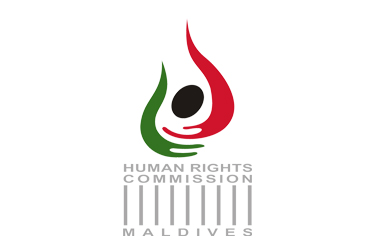19 JUNE 2015 – In yet another act of judicial over-reach, the Supreme Court has effectively neutered the Human Rights Commission of the Maldives (HRCM) by finding its stakeholder submission to the Universal Periodic Review (UPR) unlawful. It was accompanied by an ominous 11-point guideline which imposes excessive and arbitrary restrictions on the HRCM, particularly in relation to its engagement with international human rights mechanisms.
FORUM-ASIA, as secretariat of the Asian NGO Network on National Human Rights Institutions (ANNI), together with its member the Maldivian Democracy Network (MDN), unequivocally condemned the judicial harassment and guilty verdict against the HRCM members. The organizations reiterated their position that the charges have no legal basis and that the founding law of the HRCM explicitly grants them immunity from legal liability for discharging their duties in good faith.
In September 2014, the Supreme Court of the Maldives brought suo moto proceedings against all five members of the HRCM, charging them with treason after the Commission submitted an assessment of the country’s human rights situation in advance of the Maldives’ second UPR. The trial resumed on 16 June 2015 and was concluded hastily in just a few hours. At the time of writing, however, the written verdict remains unavailable. Questions regarding the independence of the judiciary and integrity of the trial continue to loom. The Supreme Court, which had only held two prior hearings, has to date yet to provide substantive evidence to show that the information published by the HRCM was untrue.
“The Supreme Court’s incessant meddling in the political affairs of the country effectively means they assume the roles of judge, jury and executioner. It is sharply ironic that the HRCM had been prosecuted and found guilty of overstepping its mandate”, said Joses Kuan, National Human Rights Institutions (NHRI) Advocacy Programme Officer at the Asian Forum for Human Rights and Development (FORUM-ASIA).
The decision by the apex court, while reprehensible, hardly comes as a surprise. It comes hot on the heels of the Supreme Court’s annulment of the presidential election results in 2013 and removal of Elections Commission members before the legislative elections in 2014. These acts of judicial activism blatantly exceed the proper exercise of judicial authority, and constitute an encroachment on the powers of the Parliament.
“On too many occasions, the Supreme Court has used its entrenched power to derail democratic principles,” said Shahinda Ismail, Executive Director of Maldivian Democracy Network (MDN). “This conduct must be halted and good governance must be restored before the country is entirely devoid of justice.”
This ruling is the nadir in a long string of reprisals against the HRCM. In March 2014, the members of the HRCM were summoned to the juvenile court on contempt of court charges after publishing a report that allegedly contained false information. The charges in this case remain outstanding and are currently being reviewed by the Supreme Court, which leaves the HRCM members in a precarious and vulnerable position.
More recently, on 10 June 2015, shortly after the nomination deadline for three vacating positions in the HRCM due in August, President Abdulla Yameen Abdul Gayoom merely forwarded three names from a slate of thirty-three candidates for Parliament to rubber-stamp. Information relating to the process of evaluation, including criteria for candidacy and involvement of civil society, was not disclosed at all.
Separately, while the Parliamentary Independent Institutions Oversight Committee is supposed to provide legislative oversight and scrutiny to safeguard the independence, accountability and functioning of the HRCM, it has been known instead to regularly summon HRCM members for questioning and threats.
Such actions only lend credence to suspicions that the State is trying to diminish the HRCM into a non-barking watchdog role and punish them for their rightly trying to fulfill broad human rights mandate.
The HRCM has made tremendous and commendable strides as the country’s principal human rights organ despite the aforementioned operational challenges, as evidenced by the instrumental role it played in the passing of the landmark Anti-Torture Act (2013). The future certainly does not bode well as the HRCM finds itself in an environment replete with threats, intimidation and reprisals. For human rights defenders, civil society and victims of rights violations and abuses, they have now lost a key ally and interlocutor in the national protection system.
About the Asian NGO Network on NHRIs (ANNI)
The Asian NGOs Network on National Human Rights Institutions (ANNI) was established in December 2006. It is a network of Asian NGOs and human rights defenders working on issues relating to National Human Rights Institutions (NHRIs). ANNI is composed of national organizations from all over Asia. ANNI currently has 30 member organizations from 17 countries or territories. The work of the ANNI members focus on strengthening the work and functioning of Asian NHRIs to better promote and protect human rights as well as to advocate for the improved compliance of Asian NHRIs with international standards, including the Paris Principles and General Observations of the Sub-Committee on Accreditation (SCA) of the International Coordinating Committee (ICC).
The Asian Forum for Human Rights and Development (FORUM-ASIA) is the Secretariat of ANNI. FORUM-ASIA has Consultative Status with the ECOSOC (UN Economic and Social Council) since 2004.




